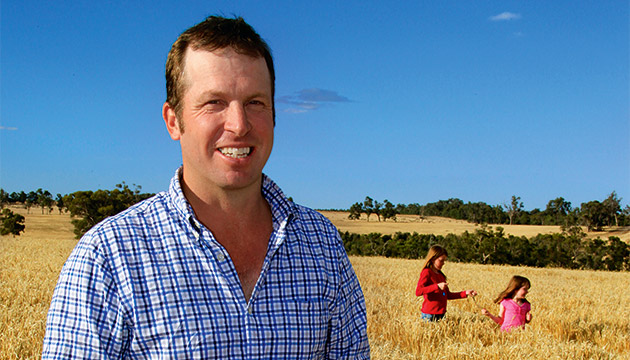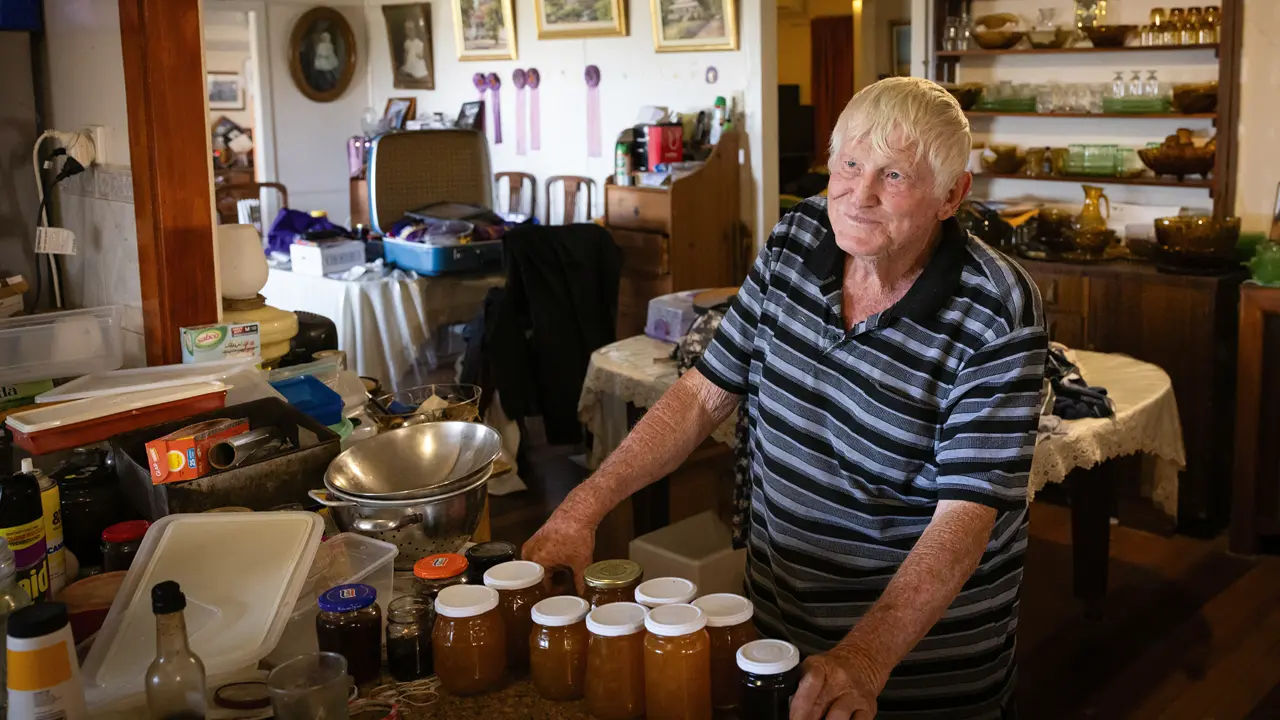Rob Egerton-Warburton has never let nay-sayers or traditionalists hold him back. The Rural Leader of the Year has a clear-cut vision for agriculture, and it doesn’t involve following the rules.
Story By Fleur Bainger
His neighbours often shake their heads and say he’s crazy. He never intended to work the land. He doesn’t eat meat, he survived cancer at 29 and he helps his wife grow hectares of hot pink flowers. Meet Rob Egerton-Warburton, the current Rural Leader of the Year.
It’s fair to say this sixth-generation farmer is anything but ordinary. At 40 years old, the West Australian chairs the state’s Sheep Industry Leadership Council, he’s the youngest member of the country’s Cooperative Research Centre (CRC) for Sheep Industry Innovation and he regularly tweets to an international following. A self-described introvert, his mantra is for greater diversification, communication and youthful leadership in agriculture, and if his latest award is anything to go by, the Nuffield scholar’s message is being heard.
Rob and his wife Jennifer run 3000 hectares in Kojonup in Western Australia’s Great Southern region, carving the land into zones dedicated to Merino sheep, canola, wheat, barley and native wildflowers called everlastings. The couple and their two daughters, Lucinda and Zara, live almost four hours’ drive from Perth and half an hour from the nearest town.
“Korellup” is the same property where Rob spent his childhood, but it’s not where he thought he’d end up. After being sent to boarding school, farming felt like more of a chore than a future vocation. “Every school holidays was work,” he says. “I’ve been crutching sheep since I was 13. I just couldn’t see the attraction.”
Adventure sports held more appeal than university so he took a job in Sydney as a trainee outdoor-education instructor. After a year of taking 14-year-old students hiking, kayaking and scuba diving, he joined a former SAS officer in Western Australia and assisted with hard yakka leadership-development trips for executives. Staff would be dropped in the bush with limited supplies and a map, and the then-19 year old would track them to ensure they were okay. “These 40-year-old guys would be crying on your shoulder, telling you how awful their life is and I thought, ‘I don’t want to be you’,” he says. “They’d have no life and no family. I couldn’t see a future in that.”
The experience left him puzzled about his future and when his father suggested he come home to figure out what he wanted to do, he agreed. It was a significant turning point. “Because I had the farm to myself I saw the challenge and the business of farming, not the drenching part,” he says. “I decided I wanted to give farming a go.”
This Story is from Issue #87
Outback Magazine: Feb/Mar 2013










